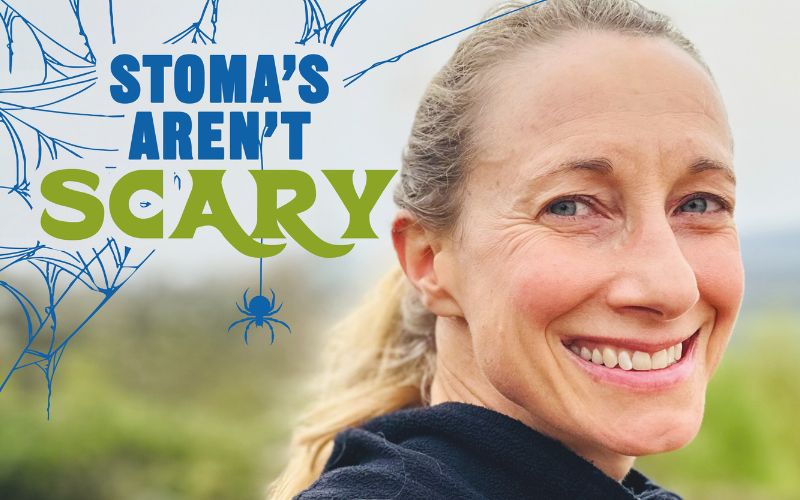
While the concept of living with a stoma can seem daunting at first, many ostomates whose medical conditions require a stoma lead full, active, and healthy lives. Yet, there is much stigma surrounding stomas, but a stoma does not define a person; rather, it is a part of their journey to better health and improved quality of life.
With increased awareness and understanding the stigma attached to stomas can be reduced, allowing ostomates to live with confidence and dignity.
How I first felt about my colostomy
When a colostomy was mentioned as a last resort to manage faecal incontinence during a colorectal consultation, I was terrified. A stoma was portrayed as something awful and only to be considered after everything else failed. This led me to believe that life would be over I had a stoma. However, this perception turned out to be misleading, and I now wish I had received better education about stomas at the time.
I had lived with the consequences of a severe birth injury for over a decade and had tried multiple unsuccessful treatments for my incontinence symptoms.
After twenty one years of managing this injury and trying every available treatment, I faced the final decision. My life revolved around toilets, becoming increasingly housebound. I had to choose between continuing a highly restricted life or opting for a stoma.
Confidence in my decision
The consultation for my elective colostomy differed significantly from my initial stoma discussion.
A different bowel nurse encouraged me to consider the benefits, such as improved quality of life and greater freedom. My surgeon provided a balanced view, acknowledging both the challenges and benefits of having a stoma, including the potential for regained control. We thoroughly reviewed stoma formation options, discussed associated risks like parastomal hernia and rectal discharge.
This informed discussion solidified my confidence in my decision.
I had also visited a stoma support group two years earlier and the overwhelming message I heard from the ostomates at the support group was that they wished they had received their stomas earlier. The consensus was that their quality of life had significantly improved. I am grateful that I had time to prepare and adjust to having a stoma, which I appreciate is not the case for those who receive their stoma in an emergency.
Causes of stoma stigma
Stomas are more common than people realise, yet they often carry a stigma that can profoundly impact the lives of those who have them. This stigma arises from fears, misconceptions, lack of awareness, and societal attitudes towards bodily functions and medical conditions.
Worries about how a stoma might affect their daily lives, including work, travel, and leisure activities. The fear of potential leaks, odours, or the need to change a stoma bag in public places can create anxiety and lead to social withdrawal.
Misconceptions about those with a stoma often lead to unfair assumptions of severe illness or incapacity. This can result in pity, exclusion, or avoidance, causing deep hurt and isolation.
Education and support are key in overcoming fears or concerns associated with stomas. Medical professionals, stoma nurses, and support groups provide valuable guidance and emotional support, helping individuals adapt to life with a stoma. Connecting with others who have similar experiences can help individuals feel less alone and more empowered to live their lives fully.
Many fear how a stoma will alter their body image, impacting self-esteem and causing self-consciousness. Societal beauty norms often neglect or stigmatise medical devices like stomas, discouraging social interactions, relationships, and open discussion about their condition.
Practical concerns about stoma care can be intimidating initially. Learning to change the pouch, maintain stoma hygiene, and address complications may seem challenging, but with time, these tasks become a familiar part of everyday life. Advances in stoma care products have significantly improved living with a stoma. Modern products are discreet, comfortable, and fit seamlessly under clothing, enabling individuals to participate in daily activities, sports, and travel with confidence.
How to overcome stoma fears
The key to overcoming fears around stomas lies in education and support. While a positive mindset is valuable, understanding how a stoma can enhance quality of life can help to shift the focus from fear to empowerment. With the right resources and attitude, living with a stoma becomes not only manageable but also an opportunity for a renewed and vibrant life.
